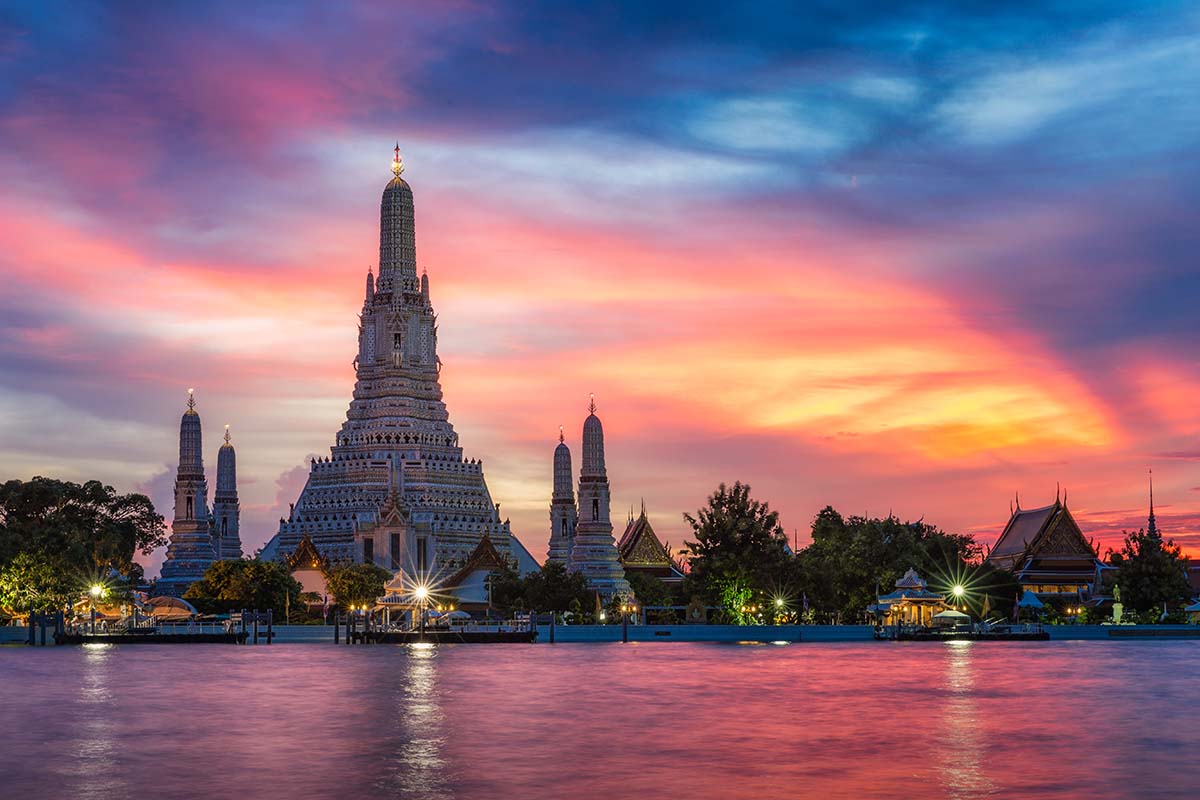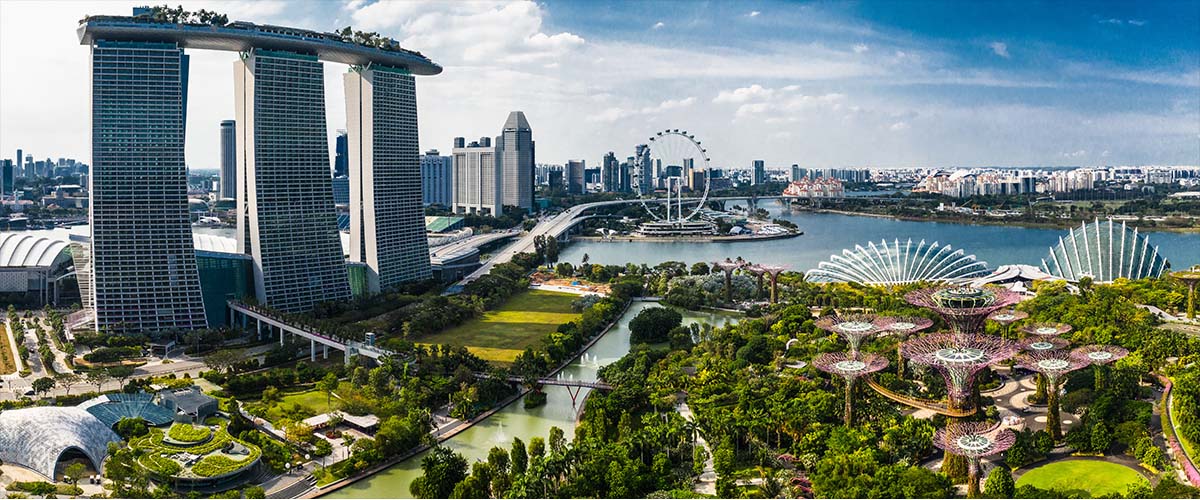
Thailand Integrated Resorts: A Sustainable Approach
22 August, 2025
Vietnam’s Gaming Industry at a Crossroads
2 September, 2025Winna Media Guest Article
27 August, 2025
Thailand’s Integrated Resorts
A Catalyst for Tourism, Jobs, and Economic Transformation
Asia’s gaming and tourism landscape is undergoing a significant transformation. Once regarded as the “next holy grail” of global gaming, Japan’s integrated resort (IR) plans have stalled, creating opportunities for new contenders to emerge. In recent years, Thailand has surfaced as a prime candidate to become Asia’s next major destination for integrated resorts. With a solid tourism foundation, a strategic location, and government backing under Prime Minister Srettha Thavisin, the country is positioning itself as a leader in this competitive sector.
Integrated resorts in Thailand go beyond gaming; they represent a comprehensive development strategy that includes tourism growth, job creation, community development, and long-term economic diversification. By learning from regional peers such as Singapore, Macau, and the Philippines, Thailand has the potential to structure its IR program in a way that maximizes benefits while also protecting its cultural and social values.

Tourism Potential: Elevating an Already Thriving Market
Thailand is one of the world’s leading inbound tourism markets, attracting nearly 40 million international visitors each year before the COVID-19 pandemic. The country’s global appeal combines stunning natural beauty, a rich cultural heritage, world-class cuisine, and affordability. The introduction of integrated resorts (IRs) has the potential to not only boost visitor numbers but also to enhance the market by attracting higher-spending tourists, increasing the length of their stays, and diversifying the sources of these visitors.
International case studies demonstrate this potential. For example, Singapore’s Marina Bay Sands and Resorts World Sentosa significantly raised Singapore’s global profile. After their openings in 2010, international arrivals increased by nearly 20% within three years, while average visitor spending grew considerably, particularly in luxury retail, dining, and entertainment. Similarly, Macau transformed its tourist profile—from a day-trip destination to a high-roller and premium mass market—through the expansion of IRs on the Cotai Strip.
In Thailand, integrated resorts could replicate these successful outcomes while leveraging the country’s existing tourism strengths. Bangkok could develop a luxury IR district akin to Marina Bay, combining cultural experiences with entertainment options. In Phuket and Pattaya, IRs could enhance beach tourism by adding family entertainment, wellness activities, and diverse dining experiences. The Eastern Economic Corridor, a government-prioritized development area, could attract MICE (Meetings, Incentives, Conventions, and Exhibitions) business, further diversifying the visitor demographic.
Moreover, integrated resorts could encourage longer stays and higher spending. While Thailand already enjoys one of Asia’s longest average visitor stays at 9.6 nights, the IR model could extend this by offering more entertainment, cultural programming, and premium hospitality. Economic models indicate that the implementation of IRs could increase tourist expenditures by over 50%, contributing billions in additional revenue to the Thai economy (Savills Asia, 2024).
Integrated resorts will not only enhance Thailand’s thriving inbound tourism market but also create opportunities to segment and elevate the visitor base, attracting high-spending, longer-staying tourists who contribute to stronger and more sustainable economic growth.

Economic Impacts: Construction and Operations Ripple Effects
The economic contributions of integrated resorts (IRs) are diverse, encompassing both the construction and operational phases. These projects typically involve multi-billion-dollar investments that can stimulate local economies through job creation, foreign direct investment (FDI), and significant tax revenues.
Construction Phase: Constructing world-class integrated resorts requires substantial capital investment. Each IR may represent development costs of $2 to $3 billion, creating significant demand for local construction, engineering, and materials suppliers. The Innovation Group’s analysis of similar projects around the world has demonstrated that construction activities not only create direct jobs but also support indirect employment in supply chains and induce increased household spending.
Operational Phase: Once they are operational, integrated resorts serve as ongoing economic engines. For instance, the resorts in Singapore support tens of thousands of jobs and contribute billions to the GDP annually. Thailand could expect a similar trajectory. If the government were to issue multiple licenses, based on the current legislative framework, annual operating revenues could exceed $10 billion, with considerable benefits extending to retail, dining, cultural attractions, and real estate.
Economic Impacts of Integrated Resorts in Thailand
| Impact Area | Construction Phase | Operational Phase |
|---|---|---|
| Direct Impacts | Thousands of jobs in construction, engineering, and design | 10,000+ permanent jobs per IR in gaming, hospitality, and entertainment |
| Indirect Impacts | Supply chain demand: steel, cement, furnishings, local subcontractors | Vendor support: food & beverage, retail, logistics, cultural programming |
| Induced Impacts | Household spending from construction wages | Increased consumer spending from IR workforce and tourism inflows |
| Government Revenues | One-time fees, land taxes, development permits | Ongoing gaming tax, corporate tax, and tourism levies |
Economic Impacts of Integrated Resorts in Thailand
Employment and Workforce Development

Integrated resorts (IRs) are well-positioned to create a diverse range of employment opportunities across various skill levels. These resorts offer entry-level positions in hospitality and gaming operations, as well as high-skilled jobs in finance, technology, and management. This variety allows for career advancement that can uplift local communities.
In Singapore, IRs generated over 40,000 jobs within their first five years. If implemented on a similar scale in Thailand, these resorts could create hundreds of thousands of jobs nationwide, both directly and indirectly. Importantly, these positions span multiple sectors, including hospitality, food and beverage, entertainment, logistics, and cultural programming.
To maximize this employment impact, Thailand can adopt international best practices in workforce training and education. Integrated resorts often collaborate with universities and technical schools to develop training academies. For instance, operators in the Philippines’ Entertainment City sponsor hospitality and gaming management programs, equipping local workers with specialized skills. In Thailand, partnerships with institutions such as Mahidol University or Chulalongkorn University could create talent pipelines.
Equally important is ensuring that these jobs lead to upward mobility. By establishing structured career development programs, Thailand’s IRs can provide pathways for employees to advance from entry-level service roles to supervisory and executive positions. This approach enhances long-term workforce stability and supports social mobility.
Community and Social Engagement
For integrated resorts (IRs) to deliver sustainable benefits, they must be designed as community assets rather than isolated enclaves. This requires intentional strategies focused on local integration, social responsibility, and cultural preservation.
Community Integration: IRs should actively partner with local businesses, artisans, and cultural groups. By showcasing Thai cuisine, crafts, music, and performing arts within the resort, operators can ensure that IRs enhance rather than overshadow local culture. This approach not only supports local entrepreneurs but also creates a more authentic experience for visitors.
Corporate Social Responsibility (CSR): Globally, IRs contribute to community development through improvements in infrastructure, education, and healthcare initiatives. For instance, in Korea, casino operators fund local scholarships and cultural events. Thailand can adopt and expand upon these models, ensuring that a portion of IR tax revenues is designated for community reinvestment.
Responsible Gaming: A critical aspect of sustainability is addressing potential social concerns related to gambling. Countries such as Singapore have implemented effective responsible gaming frameworks, which include exclusion programs, entry levies for locals, and comprehensive education campaigns. Thailand can adopt and tailor these safeguards to ensure public trust while still benefiting economically.
Infrastructure Enhancement: The scale of IR development often leads to accelerated infrastructure upgrades that benefit both tourists and locals. Improvements in airports, highways, and utilities constructed to serve resorts also enhance the quality of life for communities nearby.
Conclusion
Thailand’s initiative to develop integrated resorts is happening at a crucial time in the evolution of gaming and tourism across Asia. The potential impacts of this move are significant: it could lead to billions in foreign investment, create hundreds of thousands of jobs, attract higher-spending international visitors, and improve community infrastructure. By studying the successes of Singapore, the Philippines, and Macau, while also incorporating its unique cultural strengths, Thailand has the opportunity to redefine integrated resorts for future generations.
These integrated resorts will enhance and expand Thailand’s already booming inbound tourism market, targeting higher-spending and longer-staying visitors. Additionally, they will provide widespread economic and community benefits, positioning Thailand as a global leader in integrated entertainment and tourism.

David Rittvo is the managing director of Asian development at The Innovation Group, a leading advisory firm in the gaming, entertainment, hospitality, and leisure industries. In this role, which he began in April 2025, David leads business development efforts across Asia and Australasia, focusing on land-based integrated resort development, new market entry strategies, government relations, and operational optimization. Coordinating closely with The Innovation Group’s global team, he supports public and private sector clients in shaping sustainable, high-impact gaming and hospitality initiatives across the region.
He is also a member of our TECS Advisory Board. Please visit the TECS Advisory Board page for more information about David and contact info.


